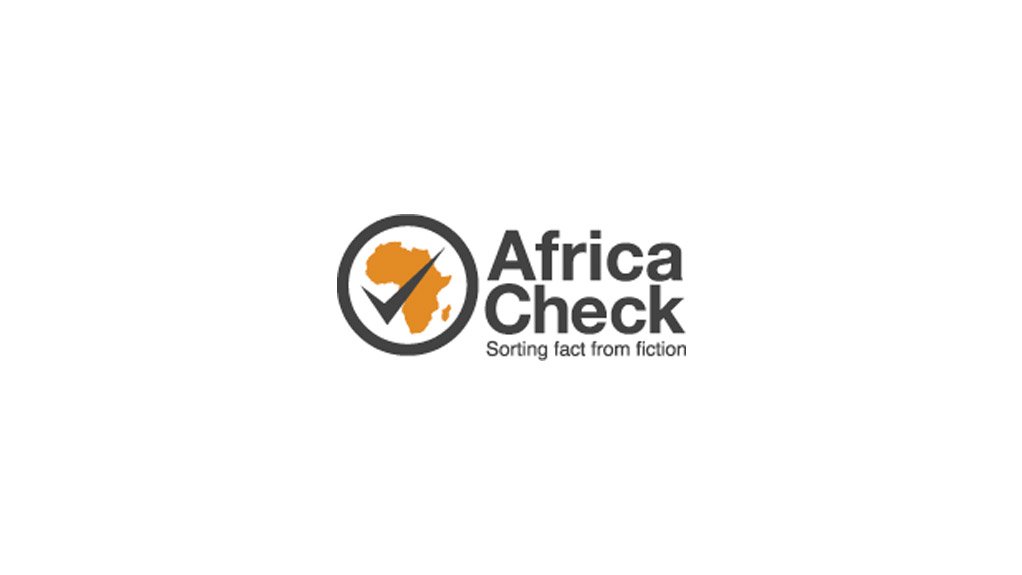South Africa’s Economic Freedom Fighters party is contesting a local government election for the first time in 2016, having only been registered as a political party in September 2013.
The EFF’s local government election manifesto is titled: “Our last hope for jobs and service delivery.” Like the African National Congress’ manifesto, the EFF’s is also 32 pages long but unlike the ANC, they do not have previous local government performance to highlight.
EFF president Julius Malema says that their manifesto “is different from the rest because its success will primarily be gauged by the number of jobs the municipality will create and the number of lives that would have been improved”.
Here we evaluate whether the EFF will be able to keep key promises, based on current laws. We sent questions to the party asking for clarity on how they were planning on implementing their promises. At the time of publishing this report we had not received a response.
(Note: Last week we examined the ANC’s election manifesto and next week we fact-check the Democratic Alliance’s manifesto.)
We will be publishing the promises one by one, so check back throughout the day.
Land expropriation
Promise: “The EFF People’s Municipality will pass by-laws which will expropriate and allocate land equitably to all residents of the municipality for residential, recreational, industrial, religious, and agricultural purposes and activities with the principle of use it or lose it.”
Our verdict: Only if the minister of public work’s delegates power to a municipality and compensation is paid
Municipalities are allowed to pass by-laws which the public is allowed to review and comment on. But this power doesn’t extend to expropriation.
“The EFF’s election promise mentions the passing of municipal expropriation by-laws, which is superfluous and irrelevant,” said Benjamin Cousins, emeritus professor at the Institute for Poverty, Land and Agrarian Studies of the University of the Western Cape.
Cousins said that South Africa’s impending Expropriation Act “does allow for the [minister of public works] to delegate powers of expropriation to another organ of state, including a municipality, which then becomes an ‘expropriating authority’”.
The land cannot be expropriated arbitrarily, according to Bulelwa Mabasa, a director at Werksmans Attorneys specialising in expropriation litigation.
“Land cannot be expropriated simply because it is not being used. There must be a legitimate public purpose or public interest,” Mabasa explained.
The EFF’s promise would also require an enormous amount of money to implement. Local government expert, Andrew Siddle, told Africa Check that the EFF’s promise was not financially feasible unless the expropriation was on a “no or only partial compensation basis”.
But the act, in its current form, requires that the amount of compensation paid to the owner of the expropriated land or property be “just and equitable”. It must reflect “an equitable balance between the public interest and the interests of the expropriated owner”.
The South African Constitution requires that this compensation be based on a number of factors, including the current use of the property and its market value.
Schools
Promise: “The EFF’s People Municipality will ensure that all schools under its jurisdiction have running water, sanitation and refuse removal.”
Our verdict: It is a municipal function
South Africa’s constitution shows that it is the function of local government to provide running water and sanitation “not just for schools, but for all residents”, local government expert Andrew Siddle told Africa Check.
But according to the department of basic education’s National Education Infrastructure Management System, there were 604 schools without access to water in South Africa in 2014. The majority were in the Eastern Cape (339) and KwaZulu-Natal (183).
There were 474 schools without sanitation facilities in the country in 2014. Again, the majority were in the Eastern Cape (366) and KwaZulu-Natal (66).
Researched by Kate Wilkinson & Masutane Modjadji, Africa Check, a non-partisan organisation which promotes accuracy in public debate and the media. Twitter @AfricaCheck and www.africacheck.org
EMAIL THIS ARTICLE SAVE THIS ARTICLE
To subscribe email subscriptions@creamermedia.co.za or click here
To advertise email advertising@creamermedia.co.za or click here











